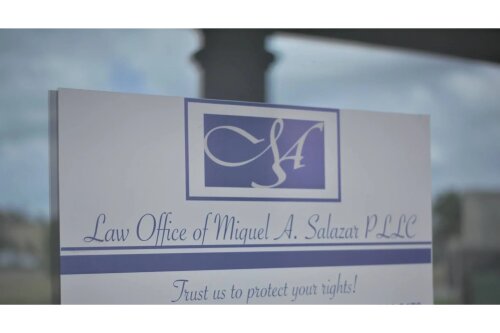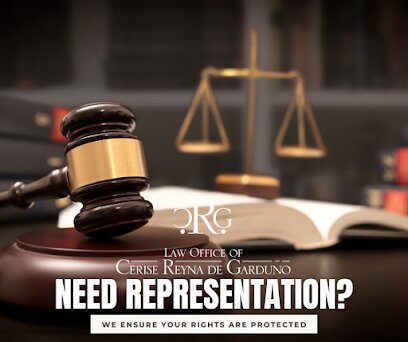Best Arrests & Searches Lawyers in Indiana
Share your needs with us, get contacted by law firms.
Free. Takes 2 min.
Or refine your search by selecting a city:
List of the best lawyers in Indiana, United States
About Arrests & Searches Law in Indiana, United States
Arrests and searches are critical aspects of criminal law in Indiana. These legal processes determine how law enforcement officers can detain individuals and when they are allowed to search persons, homes, vehicles, or property. The state of Indiana follows both federal constitutional standards and its own statutes, ensuring that individual rights are protected while enabling law enforcement to investigate and prevent crime. Understanding your rights and responsibilities when it comes to arrests and searches can help you protect yourself and respond appropriately if you are involved in a legal matter.
Why You May Need a Lawyer
Legal assistance can be essential if you are involved in a situation related to arrests and searches. Here are some common scenarios where a lawyer can help:
- You have been arrested and are unsure of your rights.
- You believe the police conducted an illegal search of your property, vehicle, or person.
- You have been charged with a crime based on evidence obtained in a search.
- You are being questioned by police and want to protect your legal interests.
- Your minor child has been detained, and you want to ensure their rights are upheld.
- You need help understanding the legal process or navigating the court system after an arrest or search.
Even a brief consultation with a qualified attorney can help you avoid mistakes, ensure your rights are protected, and provide you with the best possible defense.
Local Laws Overview
Indiana's laws regarding arrests and searches are based primarily on the United States Constitution's Fourth Amendment and related state statutes. Some key aspects include:
- Probable Cause: Police generally need probable cause to make an arrest or conduct a search. Probable cause means reasonable grounds to believe that a crime has been committed or that evidence can be found at a particular location.
- Warrants: In most cases, law enforcement must obtain a search or arrest warrant from a judge. There are exceptions, such as when evidence is in plain view or during exigent circumstances.
- Searches Without Warrants: Indiana law allows limited searches without a warrant in certain situations, including automobile searches, consent searches, and incident to a lawful arrest.
- Your Rights During an Arrest: If you are arrested, you have the right to remain silent, the right to an attorney, and the right to know the charges against you. Officers must inform you of these rights, known as "Miranda rights."
- Suppression of Evidence: If the police violate your rights during a search or arrest, your attorney may be able to suppress evidence, meaning it cannot be used against you in court.
- Indiana’s “Stop and Identify” Law: Indiana law allows police to ask for your name, address, and date of birth if they have a reasonable suspicion you are involved in criminal activity.
Because each case is unique, a local attorney can clarify how these laws apply to your specific circumstances.
Frequently Asked Questions
What is probable cause for an arrest or search?
Probable cause means there is a reasonable basis to believe a crime has been committed or that evidence of a crime is present in the place to be searched.
Do police officers always need a warrant to make an arrest or search?
No, there are some exceptions. For example, if an officer witnesses a crime or has probable cause to believe a crime has occurred, they can arrest without a warrant. Certain searches, such as those made with consent or during an emergency, can also be conducted without a warrant.
What should I do if I am being arrested?
Stay calm and do not resist. You have the right to remain silent and the right to an attorney. Ask for a lawyer immediately and do not answer questions without your attorney present.
Can police search my vehicle without my permission?
Under Indiana law, police may search your vehicle without your permission if they have probable cause to believe it contains evidence of a crime. They may also search incident to arrest or if you consent to the search.
Can evidence obtained through an illegal search be used against me?
Evidence obtained in violation of your constitutional rights is generally inadmissible (cannot be used) in court. This is known as the exclusionary rule.
Do I have to allow police into my home if they do not have a warrant?
Generally, you do not have to let police officers into your home unless they have a valid search or arrest warrant. There are exceptions for emergencies or if you give voluntary consent.
What are Miranda rights and when do they apply?
Miranda rights inform you that you have the right to remain silent, the right to an attorney, and that anything you say can be used against you in court. Police must advise you of these rights before interrogating you while in custody.
Can I refuse a search of my person or belongings?
You may refuse a search unless the officer has a warrant or another legal justification, such as probable cause or exigent circumstances. Clearly state that you do not consent to any searches.
How do I challenge an unlawful search or arrest?
A qualified criminal defense lawyer can file a motion to suppress evidence or challenge the legality of your detention in court.
What should I do if my rights were violated during an arrest or search?
Contact a defense attorney as soon as possible. They can review your case, advise you on your rights, and take steps to protect your interests.
Additional Resources
If you need more information or help regarding arrests and searches in Indiana, consider these resources:
- Indiana State Bar Association - Find referrals to local attorneys experienced in criminal defense
- Indiana Public Defender Council - Resources for individuals who qualify for public defense services
- Indiana Legal Services, Inc. - Free or low-cost legal aid for eligible clients
- Indiana Court System - Information on court procedures and self-help forms
- Indiana State Police - Policies and procedures related to law enforcement activities
Next Steps
If you believe your rights have been violated or you face legal issues related to an arrest or search, here is what you should do next:
- Do not talk to the police or investigators without legal counsel present.
- Gather all documents, such as police reports, arrest records, warrants, and any evidence you have.
- Contact a qualified criminal defense attorney or public defender as soon as possible.
- Follow your lawyer’s advice when communicating with authorities and attending court appearances.
- If you cannot afford an attorney, inquire about public defender services in your county.
Taking these steps quickly can help protect your rights, improve your legal options, and minimize the impact of an arrest or search on your life.
Lawzana helps you find the best lawyers and law firms in Indiana through a curated and pre-screened list of qualified legal professionals. Our platform offers rankings and detailed profiles of attorneys and law firms, allowing you to compare based on practice areas, including Arrests & Searches, experience, and client feedback.
Each profile includes a description of the firm's areas of practice, client reviews, team members and partners, year of establishment, spoken languages, office locations, contact information, social media presence, and any published articles or resources. Most firms on our platform speak English and are experienced in both local and international legal matters.
Get a quote from top-rated law firms in Indiana, United States — quickly, securely, and without unnecessary hassle.
Disclaimer:
The information provided on this page is for general informational purposes only and does not constitute legal advice. While we strive to ensure the accuracy and relevance of the content, legal information may change over time, and interpretations of the law can vary. You should always consult with a qualified legal professional for advice specific to your situation.
We disclaim all liability for actions taken or not taken based on the content of this page. If you believe any information is incorrect or outdated, please contact us, and we will review and update it where appropriate.
Browse arrests & searches law firms by city in Indiana
Refine your search by selecting a city.













